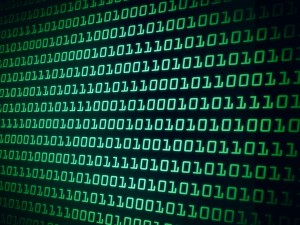It has become a universal truth that modern businesses are flooded with data. The digital era has generated an enormous amount of data, with overall data likely to escalate to 44 zettabytes by 2020. As a result, big data has become the lifeblood of the business world.
As per the Harvard Business Review, the majority of the modern-day businesses, including startups, intend to implement Artificial Intelligence and big data analytics in the near future. Some have already started implementing it.
With that said, it is getting more evident day by day that there is significant value in data processing and analysis. These technological advances are vital for businesses to grow and succeed. This is where a data scientist comes into the play. You can sign up for a learning path module if you want to pursue a career as a data scientist.
What do Data Scientists do?
Data scientists are skilled professionals having advanced training in computer science, math, and statistics. They gather vast ‘lakes’ of information and use their experience that extends to performing information management, data mining, and visualization.
Big data users have typically been large organizations who can afford data scientists to make use of the data. It is fairly common for the data scientists to have previous experience in data warehousing, cloud computing, and infrastructure design.
- Data scientists are accomplished in identifying information that stands out in some way. They create big data methodologies, path, network, and statistics to prevent any fraudulent activity.
- Data scientists can easily identify when and where the product sells best. This helps organizations to deliver the right products at the right time, also enabling them to develop new products according to the customers’ needs.
- Data scientists can help the sales and marketing teams to better understand their targeted customer base on a huge scale.
Example of how A/B Testing and Data Analysis Helps to Take Great Actions in any Business .
A/B Testing, also known as split testing or randomized controlled trial (RCT) is a powerful tool for product development. It is a randomized experiment where you have to pick the best approach from the two hypotheses (A and B). The use cases of initiating A/B Testing can be banner testing, headline testing, landing page redesign, and so on.
Suppose you are a data scientist and trying to determine whether reorganizing a website into a new layout influences conversion rate; that is, the number of visitors to the site who become customers.
One approach would be to run both versions to selected consumers and make a decision based on these numbers alone:
| Format A | Format B | |
| Visitors | 125 | 110 |
| Customers | 27 | 19 |
| Conversion % | 22.3% | 15% |
Considering the given table, it can be concluded that Format A is superior to Format B.
However, this approach could suffer from two possible errors –
- Type I Error – Misleadingly concluding that your approach was successful. This is also known as false positive result
- Type II Error – Misleadingly concluding that your approach was wrong. This is also known as false negative result
A/B Testing will allow you to effectively and accurately quantify your errors and effect size.
Ways to Learn Some of the Data Science Skills.
If you want to get the exposure to data science, you can start with the internet. From watching YouTube videos to reading blogs about data science, you can take notes and understand the concept before jumping right into it.
However, the best ways to learn data science skills is to master the following skills:
- Programming and coding – excellent skills in tools like SQL and Python
- Statistics – excellent skills in reading and understanding statistics
- Critical Thinking – excellent skills in ignoring irrelevant details
- Knowledge of Artificial Intelligence, Deep Learning, and Machine Learning
- Comfort with Mathematics
You need to work on the mentioned skills in order to become a data scientist. If you want to make a career out of it, you can sign up for Learning Paths and other online courses.
Conclusion.
Data science is changing the way people are doing business. There will be immensely more data to process in the coming ten years than you saw in the last 20 years.
from Young Upstarts https://ift.tt/2MLKZCC via website design phoenix


No comments:
Post a Comment